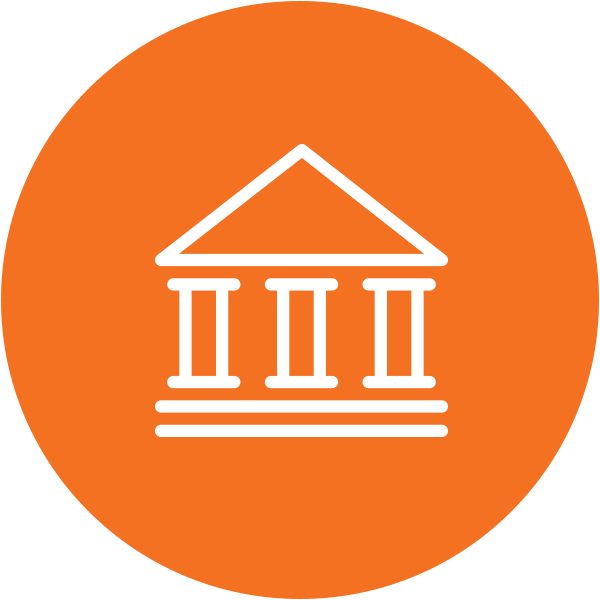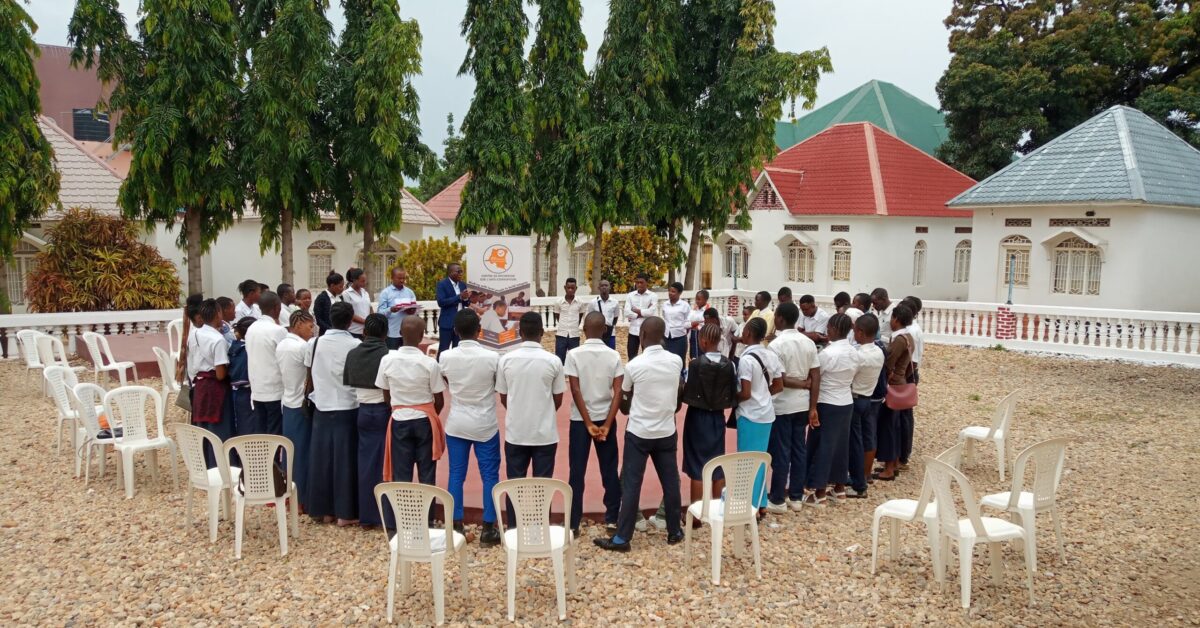We unite school-aged children to fix our failing education system.
For the past three years, CERC helped 54 secondary schools to embed anti-corruption and transparency protocols in the education system in South Kivu.
Since 2017, CERC has established Integrity Clubs in the Democratic Republic of the Congo. Students aged 14-19 learn about Integrity and monitor projects and services in their community, including their schools. The student monitors use our technology tool DevelopmentCheck to report problems and fixes.
Integrity Clubs allowed students, parents, and the public to get information on critical parameters of the schools (water and library availability, class size, toilet suitability, number of students in a class, qualification of teaching staff), the school budgets and spending. In this way, Integrity Clubs supported the government’s education reform program by making schools more accountable and inclusive.
Integrity Clubs- how they work

Integrity Education
Integrity is taught in schools by teachers trained by CERC, ensuring that students understand how corruption functions and how acting with Integrity can overcome corruption challenges.

Meetings, Forums and Networks
Regular Integrity Club (IC) meetings enable students to expand on their experience of corruption and participate in activities designed to recognize corruption as a global problem. Forums and networks between ICs and partners encourage group collaboration.

Training in monitoring
Once students are educated in Integrity, they can identify when corruption challenges delivering projects and services in their communities. Monitoring requires training in accessing information, engaging with stakeholders, and using our tech tool DevelopmentCheck to fix problems.
Highlights:
- Between 2017 and 2020 we trained 810 students in 54 Integrity Clubs across South-Kivu
- Students used DevelopmentCheck to monitor 54 infrastructure projects and services for their communities, achieving an average Fix-Rate of 32% of instances where corruption had caused problems in their delivery.
- The youth demonstrated to themselves and to others that the power to make a positive difference in their lives and their communities that they have the agency to make a difference.
- Students (ages 14-18) have proven themselves to be extremely positive agents of change, exhibiting a motivation to improve the services and projects that are delivered to their communities.
- Teaching youth the benefits of acting with integrity and the skills to practice and demand it in real-life situations gives them the confidence to always choose integrity over corruption throughout their lifetimes.
- Youth are empowered to continue to participate in civil society throughout their lifetimes.
- Project and service providers expect to be monitored by students, incentivizing them to act with integrity and improving the quality of goods they deliver.
- Even in contexts where the status of girls is low, over 40% of monitors we have trained are female.
Quotes
“With Integrity Clubs established in 54 secondary schools in South-Kivu under this initiative, combined with the use by more than eight hundred students of the tech tool “DevelopmentCheck”, to monitor the transparency, participation and efficiency of education services; now, parents and students have better ability to hold schools accountable for the quality of education services provided,” said Heri Bitamala, Executive Director.
“It is crucial to introduce this Student-led Monitoring approach in implementing the DRC Education and Training Sector Strategy 2016-2025, which introduced a free primary and secondary education system. As direct beneficiaries of the quality and inclusive education services this strategy promises, students have the right to hold the government and providers accountable through this successful social accountability mechanism,” he added.
“The DevCheck app provides key information on operation, budgets and performance of schools for students, parents, teachers and the whole community, which can be used in policy debates, budgeting and setting development priorities at the school level,” said Ngoya Bundu Harmonie, CERC Project Coordinator. Kahindo Ndjungu confirmed this, ITIP Principal in Uvira, who said, “Thanks to Local Education Clusters meetings organized in our high school, the entire process became clearer and more transparent.”
